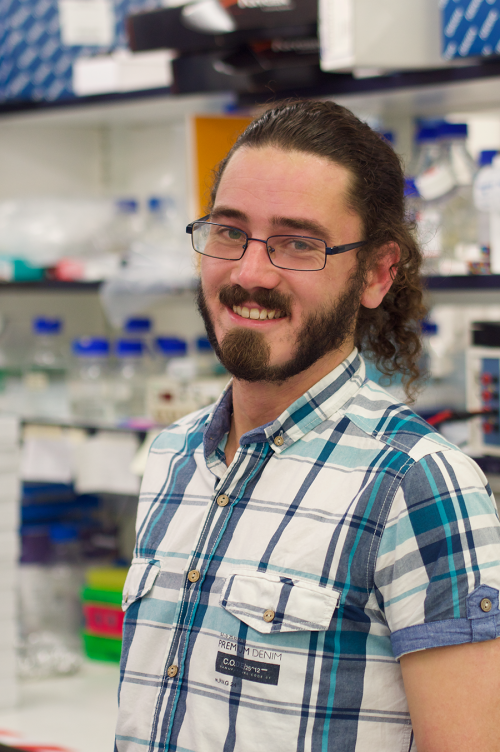
Researchers from Adrien Rousseau’s lab have identified how protein phase separation helps cell stress adaptation. This new study is now published in iScience.
Different proteins do different jobs within the cell. When cells are stressed, they need different jobs doing, and so change their proteins. This requires both increased removal of some proteins, and increased production of others. The Rousseau lab investigates the intersection of these processes. Their work identifies how cells increase production of proteasome assembly chaperones. These proteasome assembly chaperones then help build more proteasomes. These proteasomes are increase removal and recycling of other proteins. A long-term goal is to increase proteasome production to help fight disease.
Previous work in the Rousseau group identified the protein Ede1. They showed Ede1 is crucial for increased proteasome assembly chaperone production. Ede1 recruits proteasome assembly chaperone mRNAs so they can be translated into protein. Yet it remained unclear exactly how Ede1 recruited this mRNA. A postdoctoral researcher, Tom Williams, and a visiting honours student, Aurellia Winaya from the i3L, Indonesia were determined to find out how.
Tom, supported by Aurellia, chopped out parts of Ede1. This allowed them to find an area required for Ede1 interaction with mRNA. This area is important for phase separation of this protein. Phase separation is a technique many proteins use to 'un-mix': like how oil un-mixes from water. Tom next stopped phase separation using inhibitors. This stopped proteasome assembly chaperone translation. It thus seemed likely that phase separation was the key function of Ede1.
Tom set out to prove that phase separation was the key element of Ede1. He replaced the phase-separating part of Ede1 with those of unrelated proteins. These hybrid proteins were capable of supporting proteasome assembly chaperone expression. Altogether, this work showed that phase separation of Ede1 is an essential property for it to recruit proteasome assembly chaperone mRNA. Without this recruitment, proteasome assembly chaperone production is limited. To read a copy of the manuscript describing these findings click here https://doi.org/10.1016/j.isci.2023.108732.
The Rousseau lab is now exploring which elements of the mRNA are key for its interaction with Ede1, and the cell signalling events which supports this mRNA translation.

